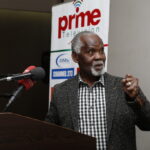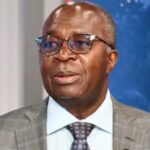Reuben Kamanga played a significant role in Zambia’s political landscape as the country’s first Vice President. His contributions to the nation during its formative years are noteworthy and reflect his dedication to public service. Here are 20 essential facts about Reuben Kamanga that highlight his life and legacy.
1. Early Life and Education
Reuben Kamanga was born on January 6, 1930, in the town of Ndola, in Zambia’s Copperbelt Province. He pursued his education in various institutions, demonstrating early on his commitment to learning and leadership.
2. Professional Background
Before entering politics, Kamanga worked as a teacher and a civil servant. His background in education provided him with a strong foundation for his future political career.
3. Involvement in Politics
Kamanga joined the United National Independence Party (UNIP) and became actively involved in the movement for Zambia’s independence from British colonial rule. He was an influential figure in the party, advocating for the rights and freedoms of Zambians.
4. Role in Independence Movement
Kamanga was a key player in the negotiations for Zambia’s independence, working alongside other prominent leaders, including Kenneth Kaunda. His efforts were instrumental in achieving self-governance for the country in 1964.
5. First Vice President of Zambia
Following Zambia’s independence, Kamanga was appointed the first Vice President in 1964. This position marked a significant milestone in his political career and highlighted his importance in the new government.
6. Close Relationship with Kenneth Kaunda
Kamanga had a close working relationship with Kenneth Kaunda, Zambia’s first President. Their collaboration was crucial in shaping the country’s policies and governance during the early years of independence.
7. Contributions to Education
As a former teacher, Kamanga was a strong advocate for education. He believed that education was vital for the nation’s development and worked to improve access to educational opportunities for all Zambians.
8. Role in Government Administration
During his tenure as Vice President, Kamanga played a significant role in the administration of the government, overseeing various ministries and ensuring the implementation of national policies.
9. Championing National Unity
Kamanga was committed to promoting national unity and reconciliation among the diverse ethnic groups in Zambia. He believed that fostering a sense of belonging was essential for the country’s stability.
10. Economic Development Focus
As Vice President, Kamanga prioritized economic development and worked to implement policies that would enhance Zambia’s economic growth. He recognized the importance of diversification and sustainable development.
11. Engagement in Foreign Affairs
Kamanga represented Zambia in various international forums, advocating for the country’s interests abroad. His diplomatic skills helped strengthen Zambia’s relationships with other nations.
12. Advocacy for Social Justice
Kamanga was an advocate for social justice and equality. He worked to address issues such as poverty and inequality, emphasizing the need for policies that would uplift marginalized communities.
13. Support for Women’s Rights
Throughout his political career, Kamanga supported initiatives aimed at empowering women. He believed that women played a crucial role in the development of the nation and should have equal opportunities.
14. Resignation as Vice President
Kamanga resigned from his position as Vice President in 1970. His resignation was part of the political changes occurring in Zambia at the time, as the country transitioned to a one-party state under Kaunda.
15. Later Political Roles
After resigning as Vice President, Kamanga continued to engage in politics, serving in various capacities, including as a member of the National Assembly. His experience and knowledge were invaluable to the political landscape of Zambia.
16. Recognition and Awards
Throughout his life, Kamanga received various accolades and awards for his contributions to Zambia. His commitment to public service and nation-building was recognized by both local and international organizations.
17. Commitment to Rural Development
Kamanga was passionate about rural development and worked to implement programs that would improve the living conditions of rural communities. He understood the challenges faced by those outside urban areas.
18. Legacy of Service
Reuben Kamanga’s legacy is one of dedication to his country and its people. He is remembered for his contributions to Zambia’s independence and the establishment of a stable government.
19. Community Engagement
Kamanga was actively involved in his community, participating in various initiatives aimed at improving the lives of ordinary Zambians. He believed in the importance of grassroots involvement in governance.
20. Passing and Remembrance
Reuben Kamanga passed away on December 31, 1999, leaving behind a legacy of service and commitment to Zambia. His contributions to the country’s political landscape are remembered and celebrated as part of Zambia’s rich history.
In conclusion, Reuben Kamanga’s life and career were marked by a steadfast commitment to public service and the development of Zambia. As the first Vice President, he played a crucial role in shaping the nation during its early years of independence. His dedication to education, social justice, and national unity continues to inspire future generations of Zambians. Kamanga’s legacy as a founding leader will be cherished for years to come.






